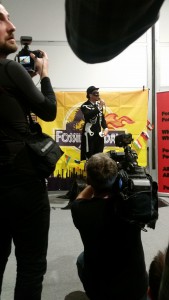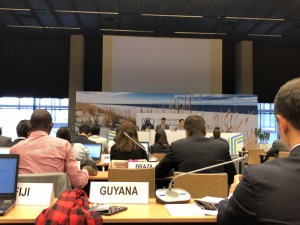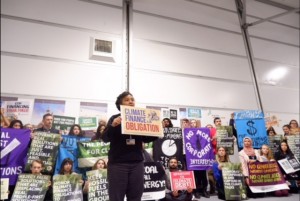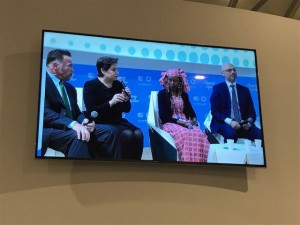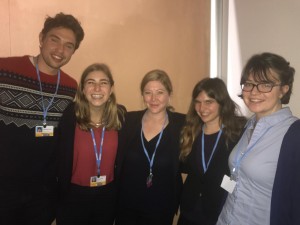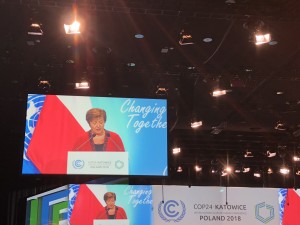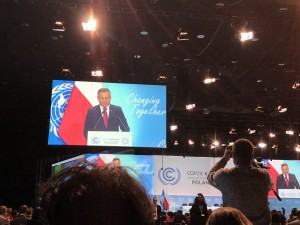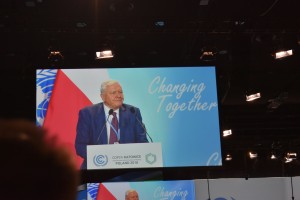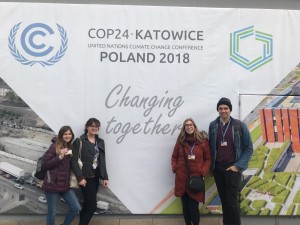As you may or may not know, an umbrella group of Non-Governmental Organisations, Climate Action Network (CAN), has been organizing awards called “Fossil of the Day” at the COPs since 1999 which is an award given to the country that has done their ‘best’ to block progress in the negotiations on each day of the COP. Members of CAN vote each day on which country can claim this prestigious prize and today….
the award went to…. Poland!! CAN cited the Polish President who said that there was “no contradiction between climate protection and coal” during his Plenary speech yesterday. Today he further stated that “Poland has enough coal to last for another 200 years”… and that the “Polish mining industry and mining constituencies were the foundations of the Polish economy determining the country’s energy security and are a greater extent towards energy sovereignty.”
As it is only the first day of negotiations, I do not know how much we can really look into the significance of this award and there are plenty more days ahead for other countries to take a lead in blocking negotiations. I do think that as the hosts of a COP, there is a lot of pressure for Poland to “put on a good front” and there are a lot of people very willing to critique the COP itself (just how much carbon was emitted to get 197 countries to convene?) and looking for any sort of juxtaposition between what states say compared to what they do. I did not attend any high level negotiations today so I am not able to say whether I think Poland is more deserving of this award than any other country but somehow I can’t help feeling that Poland only got this award because it’s been under the microscope more so than other countries today and yesterday.
There’s a lot to unpack in this award, that’s for sure but here are just a few questions I am thinking about:
- Do you think Poland’s stance on supporting the coal industry is worse than a country’s support for fracking or nuclear power? (Can’t we critique every country for a bad climate policy decision?) Or did Poland win the award because it was selling the ‘wrong’ sorts of ideas to the wrong audience?
- As a host of COP, is it really Poland’s job to be at the forefront of climate policy? Afterall, isn’t the point of having different countries host the COP so that different voices can be heard and different cultures experienced?
Also, I think it’s really interesting to think about how the Fossil of the Day award can be used as a climate negotiating tool.
- Do you think that the award would make more people engaged with the COP and would a daily spotlight on a specific country help the public follow the COP events that much more?
- What do the countries who win this award think? It’s not a great award to get, that’s for sure, but will it change the way in which, for example, Poland will think about it’s message?
As CAN stated, it has definitely been “a hot welcome from the hosts of COP24!” Seriously, it’s cold in Poland but not as cold as I thought it would be…
— Marianne
P.S.I You can follow more of the Fossil of the Day COP24 awards here on their facebook page! Or, to learn more about CAN, click here.
